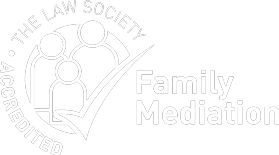Family Proceedings and Accusations
With COVID-19 dominating the news and everyone’s thoughts in recent weeks, some may have missed the story of Dubai’s Sheikh Mohammed and the publication of a damning judgment about his treatment of family members.
Allegations against him, which included abduction, intimidation and torture, emerged during Family Law proceedings. Given the potential influence that that type of conduct would have on decisions to be made by the Family Courts, a hearing was held to establish the facts: did what was said to have happened happen?
The fact-finding hearing did not end well for Sheikh Mohammed, with the judge deciding that various allegations had been made out. Ordinarily, those findings would have remained private. But in this case the decision was made to publish the judgment:
‘…[I]n the wholly unusual circumstances of this case, I consider that widespread media publicity with the aim of presenting the facts as found by a judge in a court of law is a necessary step in order to meet the private and family life needs of the mother and the children. The purpose of publication is to correct the false narrative that has been generated and currently surrounds their ability to have any form of family, private or social life outside the immediate confines of their home.’
Thankfully, most Family Law cases in the UK do not involve issues as extreme as those in that of Sheikh Mohammed. But the courts’ handling of his family’s situation should reassure everyone of our legal system’s commitment to human rights and the law. This means anyone involved in Family proceedings, whatever their personal circumstances, should feel confident that their case will be dealt with thoroughly and fairly. And, as a Family Law solicitor, I hope this will further encourage people in difficult situations – including victims of physical or mental abuse within families, or other maltreatment – to feel able to speak out.
If only it were that straightforward. I know from working closely with victims of domestic and other forms of abuse that it is often anything but. There are all sorts of reasons why people are reluctant to put their former partner’s behaviour on the record. They might not recognise that behaviour as abuse. There may be a fear of repercussions, either from the perpetrator or from their family and friends. They may doubt that their version of events would be believed. They may feel a sense of loyalty towards their former partner. And in some cases, there is such deep-seated control exercised over the victim that he or she feels completely powerless.
My message is that there is help and support out there. Not only is ‘coercive control’ a criminal offence, from a Family Law perspective, solicitors and courts are ready to put in place protective measures (safety is the number-one priority) and to ensure that the right arrangements are made to safeguard the welfare of children of the relationship. While the usual presumption is that it is in a child’s best interests to maintain a relationship with both parents, that will be modified if it is felt necessary to prevent, limit or impose conditions on contact.
And another word of reassurance. While the world at large has learned about the details of Sheikh Mohammed’s case, that is not the norm. You should not expect that to happen in your case. You may have heard about the move towards making Family Courts more transparent – and Family Court judgments do get published, with personal details redacted. Later this year, some Family cases that reach the Court of Appeal could be live-streamed. But I don’t think we are anywhere near having cases (particularly those involving arrangements for children) routinely broadcast.
So, for the vast majority of families whose separations and post-divorce arrangements are handled in county courts around the country, the details will remain under wraps. That should be of comfort to all those going through the challenge of unraveling and moving on from difficult relationships, particularly those involving highly sensitive issues.
To talk to me about anything Family Law related, get in touch via [email protected] .











